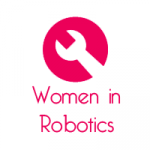
Robohub.org
25 women in robotics you need to know about – 2017
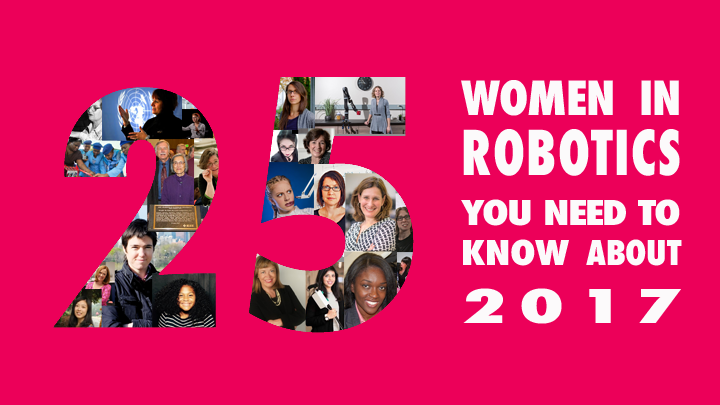
Ada Lovelace Day on October 10 2017 is a day to celebrate the achievements of women in technology and there was no shortage of women to feature on Robohub’s annual Ada Lovelace Day “25 women in robotics you need to know about” list. (If you don’t see someone you expected then they’ll probably be on next year’s list, or on our first four lists from 2013, 2014, 2015, 2016 – please read them too!)
This year we are featuring women from all over the world, including early stage entrepreneurs, seasoned business women, investors, inventors, makers, educators, and organizers; we also feature early career researchers, established academics, senior scientists and politicians. The unifying characteristic of all these women is their inspirational story, their enthusiasm, their fearlessness, their vision, ambition, and accomplishments. Every year we’re inspired and hope that you are too.
It’s been a roller coaster year of tough headlines for tech diversity … In February, engineer Susan Fowler wrote a blog post “Reflecting on one very, very strange year at Uber. For some it was a wake-up call to the sexual harassment in tech culture, and for others it was just a public confirmation of what was already well-known. A series of high-profile mea culpa’s from male investors and CEOs ensued; then James Damore was fired from Google after implying that biological differences — not sexism — lie behind the gender gap.
It seems negative, but the publicity around bias, harassment and lack of diversity does provide public vindication for women like Susan Fowler, Tracy Chou, Erica Joy Baker and Ellen Pao who took stands against sexism and suffered for it. We’re now starting to see some positive outcomes. For example, Ellen Pao has just released a book, Reset, about her experience suing a prominent venture capital firm for bias and says, “My lawsuit failed. Others won’t.”
This year, Ellen Pao, Tracy Chou, Erica Joy Baker joined other women fighting against sexism and racism in the tech industry by starting Project Include, a non-profit that uses data and advocacy to accelerate diversity and inclusion solutions in the tech industry. Tracy Chou was also named as one of MIT Tech review’s Innovators under 35 alongside some 25 Women in Robotics alumni – Angela Schoellig [2013] and Anca Draga [2016].
Women in robotics still face challenges, even danger, such as Stella Uzochukwu-Denis and her fearless female robotics students face from Boko Haram extremists. And we all face the relentless lack of diversity and general apathy about the gender gap in our daily workplaces.
And yet robotics itself faces huge challenges. We are a very small segment of the very rich tech industry and robotics startups struggle to attract great talent. We have an opportunity to improve our diversity hiring practices to gain more recruits as well as increasing our internal innovation capacity, something that Linda Pouliot of Dishcraft writes about with elegance. As Pouliot notes, if you’re a robotics startup looking to hire, your personal network is your biggest asset — yet another reason for women in robotics to know about each other and to network, like with the Women in Robotics organization.
Speaking of networks, we’re biased towards the countries and careers that we know well. It’s a challenge to provide a representative sample of the wide range of jobs around the world that women are doing in robotics. Perhaps you can help us for next time with more nominations from other regions? Email nominations@womeninrobotics.org with suggestions.
Without further ado, here are 25 women in robotics you should know about (in alphabetical order) for 2017. Enjoy!
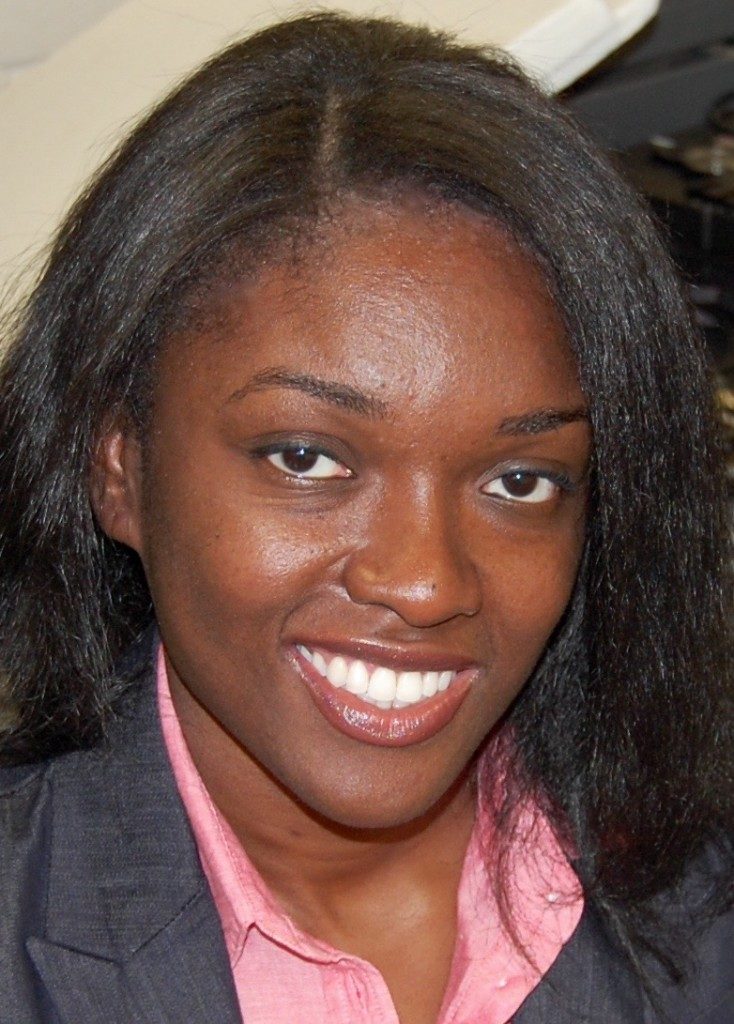 |
Muyinatu Bell Assistant Professor at Johns HopkinsMuyinatu A. Lediju Bell is the director of the Photoacoustic and Ultrasonic Systems Engineering (PULSE) Lab, a highly interdisciplinary research program to engineer and deploy innovative biomedical imaging systems that address unmet clinical needs in neurosurgical navigation, cardiovascular disease, women’s health, cancer detection and treatment. Before Johns Hopkins, she obtained a PhD in Biomedical Engineering from Duke University and spent a year abroad at the Institute of Cancer Research and Royal Marsden Hospital in the UK. Dr Bell is also the recipient of the NIH K99/R00 Pathway to Independence Award and was named one of MIT Technology Review’s 35 Innovators Under 35. |
 |
Jeanette Bohg Assistant Professor at Stanford and Guest Researcher at Max Planck Institute for Intelligent SystemsJeannette Bohg is an Assistant Professor in Computer Science at Stanford and Guest Researcher at the Autonomous Motion Department of MPI. Her research focuses on perception for autonomous robotic manipulation and grasping, and she is specifically interested in developing methods that are goal-directed, real-time and multi-modal such that they can provide meaningful feedback for execution and learning. Before joining the Autonomous Motion lab in January 2012, she was a PhD student at the Computer Vision and Active Perception lab (CVAP) at KTH in Stockholm. Her thesis on Multi-modal scene understanding for Robotic Grasping was performed under the supervision of Prof. Danica Kragic. She studied at Chalmers in Gothenburg and at the Technical University in Dresden where she received her Master in Art and Technology and her Diploma in Computer Science, respectively. |

|
Maria Chiara Carozza Professor of Biorobotics at Sant’Anna School of Advanced Studies (SSSUP)After graduating in Physics at the university of Pisa and obtaining a PhD in Engineering, Maria Chiara Carozza became Professor of Biorobotics. She was Director of the Research Department, Coordinator of the SSSUP Laboratory ARTS and elected Rector of SSSUP in 2007. As well as being involved in many EU and multinational projects such as CYBERLEGS, ROBOCASA, WAY, CogLaboration, Nanobiotouch, Evryon, SmartHand, Neurobotics, RobotCub and CyberHand, she is also active in politics. She was Minister of Education, University and Research in the Letta Government developing a national research program and remains active in Italian Parliament. Recipient of many awards, Dr Carozza has published more than 80 ISI publications,130 papers, holds 15 patents and is active in international conferences and professional societies. Her primary interest remain improving conditions for all in society through bioengineering, HRI, humanoid robotics, intelligent environments, prosthetics, tactile sensors and artificial skin. |
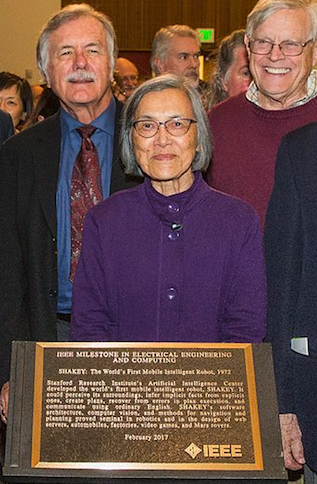 |
Helen Chan Wolf Original Shakey Team at SRI InternationalHelen Chan Wolf joined the SRI AI Group in 1966 and worked on Shakey the world’s first mobile autonomous robot. In 2017 Shakey was honored by an IEEE Milestone. Shakey was the first robot to embody artificial intelligence, to perceive its surroundings, deduce facts, make a plan to achieve a goal, navigate from place to place, monitor execution of the plan, and improve through learning. Wolf’s job was to work with the images and extract coordinates for Shakey. Her research papers included scene analysis, image matching and map guided interpretation of remotely sensed images. She was also one of the pioneers of automated facial recognition. |
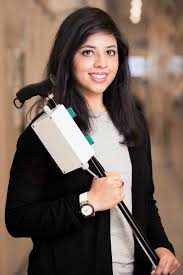 |
Neha Chaudhry Founder of Walk to Beat / Bristol Robotics Lab IncubatorAfter studying a Masters Degree in Marketing at UWE Bristol, Product Design Engineer Neha Chaudhry went on to develop award winning Walk to Beat. Inspired by her late grandad who suffered from Parkinson’s for 8 years, her product is a robotic walking stick with an innovative technology that gives out pulses in the handle – it’s discreet and looks good, so people feel empowered instead of disabled. She has won five prizes for her work including three awards for entrepreneurship, and the Entrepreneurship award – European Robotics Forum. |
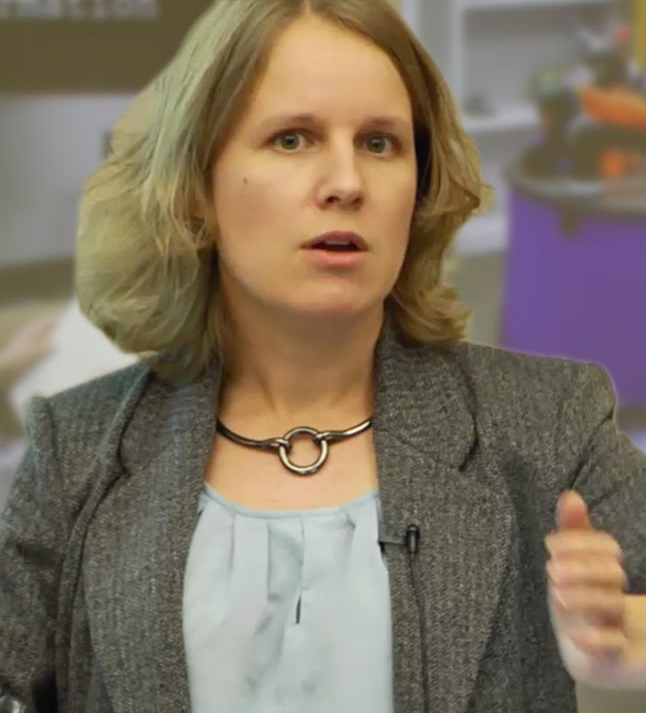 |
Sonia Chernova Assistant Professor at the School of Interactive Computing, Georgia TechSonia Chernova is the Catherine M. and James E. Allchin Early-Career Assistant Professor in the School of Interactive Computing at Georgia Tech. She received her Ph.D. and B.S. degrees in Computer Science from Carnegie Mellon University, and held positions as a Postdoctoral Associate at the MIT Media Lab and as Assistant Professor at Worcester Polytechnic Institute prior to joining Georgia Tech. She directs the Robot Autonomy and Interactive Learning (RAIL) lab, working on developing robots that are able to effectively operate in human environments. Her research interests span robotics and artificial intelligence, including semantic reasoning, adjustable autonomy, human computation and cloud robotics. |
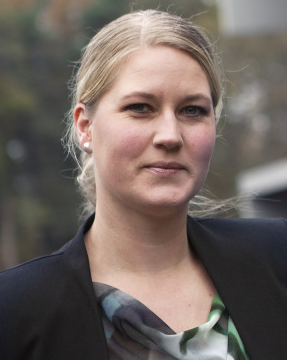 |
Maartje De Graaf Postdoctoral Research Associate Cognitive, Linguistic and Psychological Sciences, Brown UniversityMaartje De Graaf joined Brown’s Humanity Centered Robotics Initiative in 2017 with a Rubicon grant from the Netherlands Organization for Scientific Research (NWO) to investigate the underlying psychological and cognitive processes of how people explain robot behaviors, and whether and how these processes differentiate from how people explain human behaviors. Before starting at Brown University, she was a postdoctoral researcher at the Department of Communication Science, University of Twente, The Netherlands. She has a Bachelor of Business Administration in Communication Management, a Master of Science in Communication Studies and a PhD in Human-Robot Interaction. |
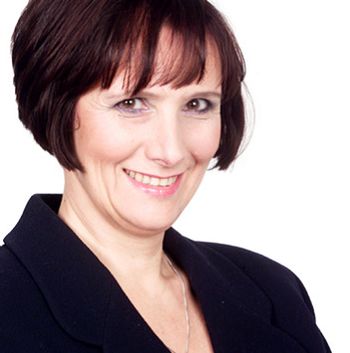 |
Kay Firth-Butterfield Project Head for AI and Machine Learning at World Economic Forum / Executive Committee Vice-Chair for IEEE Global Initiative for Ethical Considerations in AI and Autonomous Systems / CoFounder of AI Austin Kay Firth-Butterfield is a Barrister and Judge who works on the societal impact of AI and robotics. She is also a Distinguished Scholar of the Robert E Strauss Center at the University of Texas, where she cofounded the Consortium for Law and Policy of Artificial Intelligence and Robotics. She is the former Chief Officer of the Lucid.ai Ethics Advisory Panel and Vice-Chair of The IEEE Global Initiative for Ethical Considerations in AI and Autonomous Systems. Additionally, she is a Partner in the Cognitive Finance group and an adjunct Professor of Law. She advises governments, think tanks, businesses, inter-governmental bodies and non-profits about artificial intelligence, law and policy. |
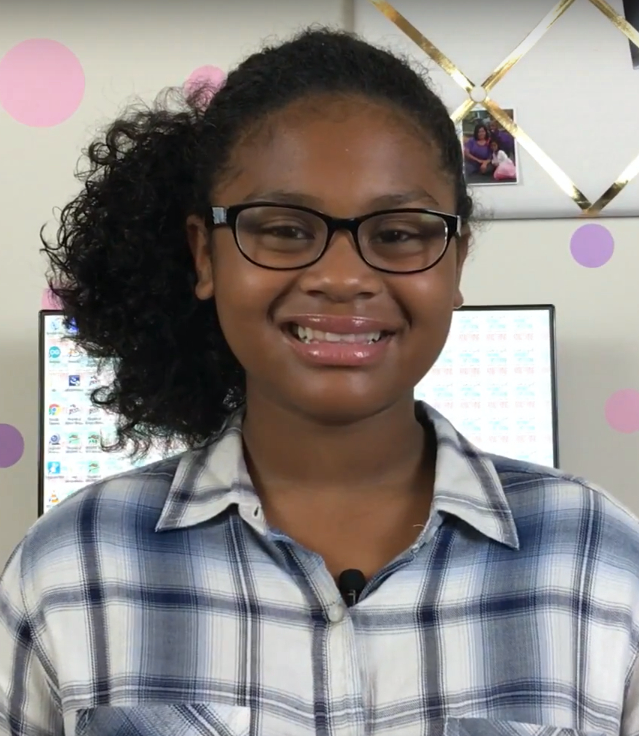 |
Gabby Frierson aka RoboGabby Student at Cane Bay Middle SchoolGabby is a young middle schooler who posts about building and programming robots as “RoboGabby”. Her goal is to attract more young girls, like herself, to exploring STEM. Gabby shares tutorials on VEX IQ, ROBOTC, Robot Virtual Worlds, Python, Java and is currently shooting some new tutorials. Her sheros are Katherine Johnson and Ayanna Howard who have proved that all girls of color, or just girls in general can be into STEM, robotics and more. |
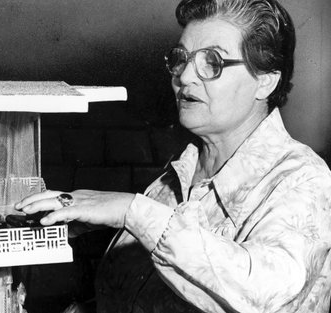 |
Frances Gabe VALE: 1915-2016 Inventor and roboticistFrances Gabe was a renowned inventor, and a woman ahead of her time. Daughter of a builder, she was happier on the building site than in school “which moved too slow for me”. As an adult she took issue with housework. “Housework is a thankless, unending job,” she told The Ottawa Citizen in 1996. “It’s a nerve-twangling bore. Who wants it? Nobody!” Touring the US speaking to women’s groups, she self funded, and over 15 years, built her prototype house, where she lived for most of her life. She patented 68 different inventions, perhaps most cleverly her insitu dishwashing drawer and clothes laundering cupboards. But by the time she died in Dec 2016 aged 101, few people remembered her passion for automating ‘women’s work’, let alone celebrated her as the world’s first self taught female roboticist. |
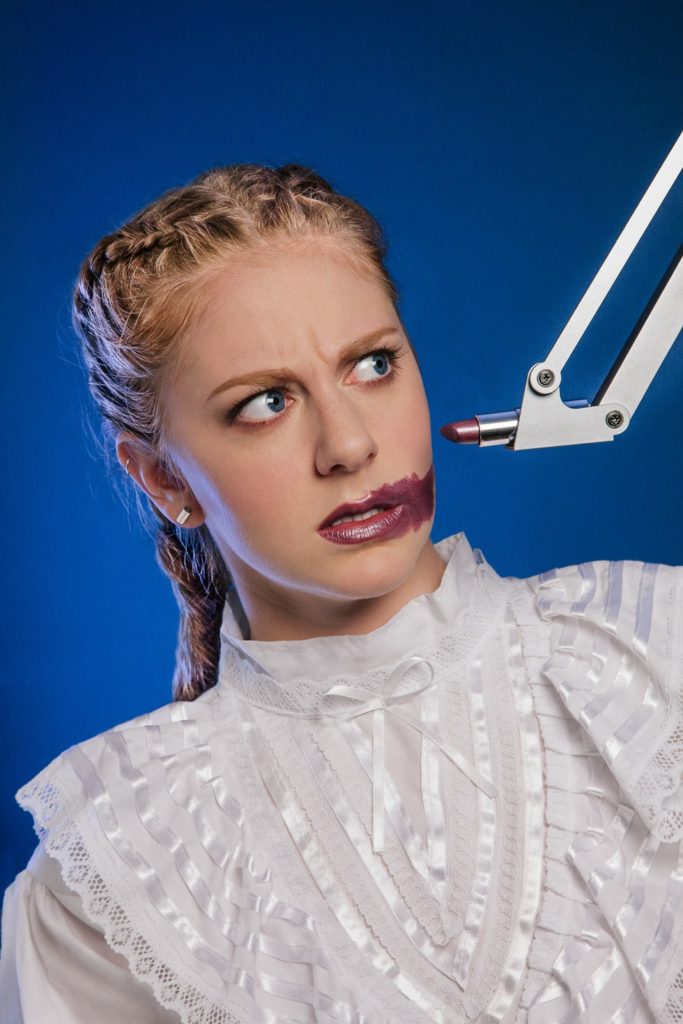 |
Simone Giertz aka Queen of Shitty Robots Inventor, Youtuber and DIY Astronaut Simone Giertz started building robots as a child, however it wasn’t the career she had planned, which ranged from studying physics in Stockholm, to being an MMA sports journalist and working on Sweden’s website. She started a youtube channel for her comedy sketches and ended up showing off her ‘shitty robots’ and blowing up the internet. In an interview with Paper she describes how she got tired of being too serious and started to enjoy everything that she did. Now Simone is in San Francisco as a part time host of Tested and continuing her own Youtube. You can support her on Patreon. |
 |
Suzanne Gildert CoFounder & CSO of Kindred.AISuzanne Gildert is co-founder and CSO of Kindred AI building personal robots that use machine learning to recognize patterns and make decisions. She oversees the design and engineering of the company’s human-like robots and is responsible for the development of cognitive architectures that allow these robots to learn about themselves and their environments. Before founding Kindred, Suzanne worked as a physicist at D-Wave, designing and building superconducting quantum processors, and as a researcher in quantum artificial intelligence software applications. She received her PhD in experimental physics from the University of Birmingham and likes science outreach, retro tech art, coffee, cats, electronic music and extreme lifelogging. She is a published author of a book of art and poetry. |
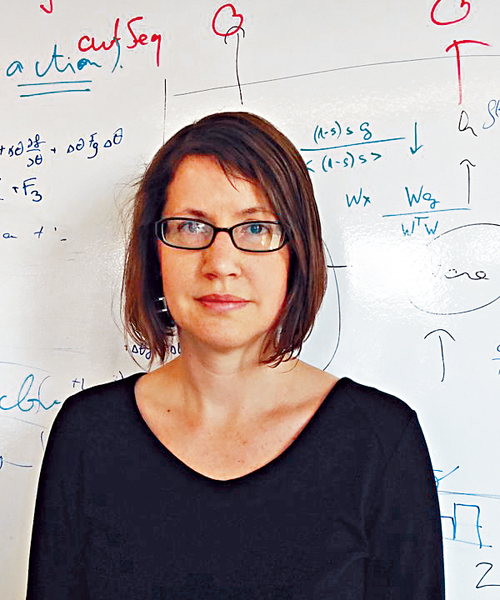 |
Raia Hadsell Research Scientist at Google DeepMindRaia Hadsell joined DeepMind in London in early 2014, to extend her research interests in robotics, neural networks, and real world learning systems. After an undergraduate degree in religion and philosophy from Reed College, Raia did a computer science PhD with Yann LeCun, at NYU, focused on machine learning using Siamese neural nets (often called a ‘triplet loss’ today) and on deep learning for mobile robots in the wild. Her thesis, ‘Learning Long-range vision for offroad robots’, was awarded the Outstanding Dissertation award in 2009. She spent a post-doc at CMU Robotics Institute, working with Drew Bagnell and Martial Hebert, and then became a research scientist at SRI International, at the Vision and Robotics group in Princeton, NJ. Her current work focuses on a number of fundamental challenges in AGI, including continual and transfer learning, deep reinforcement learning, and neural models of navigation. |
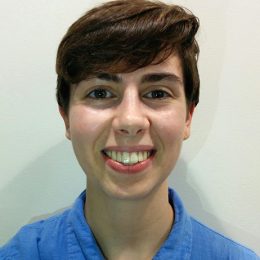 |
Sarah Hensley MIT EECS Angle Undergraduate Research and Innovation Scholar at MIT & NASASarah Hensley is in the SuperUROP program at MIT which combines her undergraduate and masters EE studies with “real world research” at the Jet Propulsion Lab and the DARPA Robotics Challenge. Sarah is continuing to work on evaluating the force and torque control capabilities of Valkyrie’s series elastic actuators, in readiness for space-related tasks such as opening airlock hatches, attaching and removing power cables, repairing equipment, and retrieving samples. |
 |
Anjali Jaiprakash Advance QLD Research Fellow, Australian Center for Robotic Vision QUTAnjali Jaiprakash is a life sciences researcher who embraces novel technologies to solve medical challenges. She has experience in the fields of medical robotics, medical devices, orthopaedics, trauman, bone and cartilage biology, with research in hospital and clinical settings. Anjali is the core scientist for 2 research teams; Developing vision and control systems for robotic knee arthroscopy; and Developing a universal retinal diagnostic system. She was also a finalist for Imperial College London’s 2016 Best Project Award and recipient of the 2017 Tall Poppy Science Award from the Australian Institute of Policy and Science. |
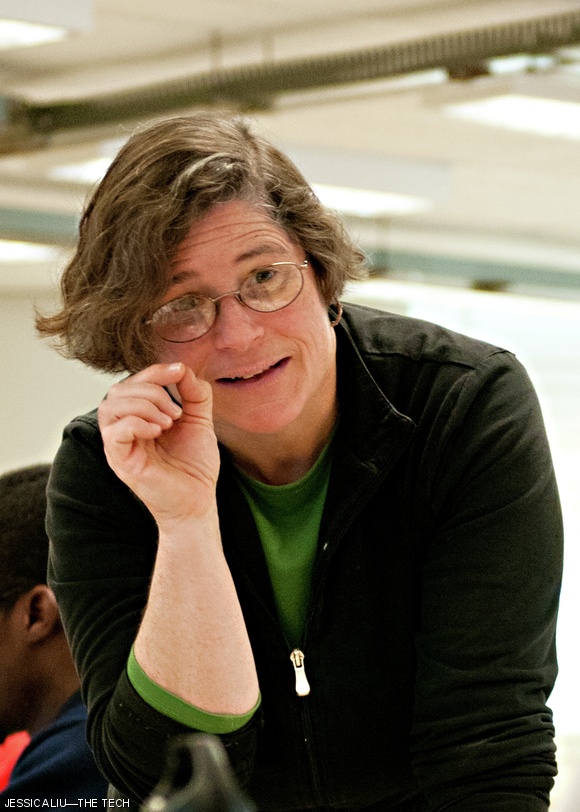 |
Leslie P Kaelbling Panasonic Professor of Computer Science and Engineering and Research Director of CSAIL at MITLeslie Kaelbling has previously held positions at Brown University, the Artificial Intelligence Center of SRI International, and at Teleos Research. She received an A. B. in Philosophy in 1983 and a Ph. D. in Computer Science in 1990, both from Stanford University. Prof. Kaelbling has done substantial research on designing situated agents, mobile robotics, reinforcement learning, and decision-theoretic planning. In 2000, she founded the Journal of Machine Learning Research where she currently serves as editor-in-chief. Prof. Kaelbling is an NSF Presidential Faculty Fellow, a former member of the AAAI Executive Council, the 1997 recipient of the IJCAI Computers and Thought Award, a trustee of IJCAII and a fellow of the AAAI. |
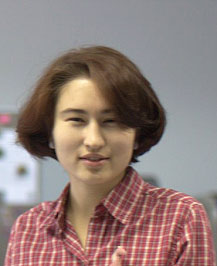 |
Valery Komissarova Hardware VC at Grishin RoboticsValery Komissarova is a robotics investor with Grishin Robotics. Prior to that, she oversaw the internal and external relations at the internet company Mail.Ru Group, which is the biggest player in Eastern Europe, for 4 years, navigating the company’s communication policy through numerous M&As and IPOs as well as fast growth from 300 employees to 3,000. She has an extensive technological background in software engineering and systems architecture and has written books and articles about topics ranging from developing drivers to information security. Valery studied international business and management at Bournemouth University, and she also has a diploma from the Chartered Institute of Public Relations and Certificate in IR of the Investor Relations Society UK. |
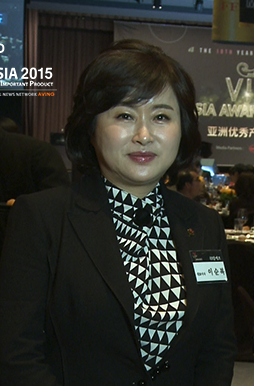 |
Sharon (Soon Bok) Lee CEO of Robot of the FutureThe first product from Korean startup Robot Of The Future is Windowmate – a robot windowcleaner. CEO Sharon (Soon Bok) Lee founded the company in mid 2014, developed the IP and prototypes and was selected by the Korean Govt for a Silicon Valley Startup Program. Since then, Sharon has been rolling out a global sales campaign starting with Japan and then moving to Europe, with use cases being both residential for high density apartment living and commercial. Sharon brings lengthy experience as a technology manager and CEO to Robot of the Future and was awarded the 2015 VIP ASIA Award for CEOs. |
 |
Wanxi Liu Systems Analyst at Intuitive Surgical and Robotics BloggerWanxi Liu graduated from Stanford as a Mechanical Engineering master in June, 2015, and is currently working at Intuitive Surgical as Systems Analyst (Control/Robotics Engineer). She did her undergraduate in Optical Engineering, but her strong interests in personal assistance or service robots and medical robots lead her to developing robotic simulations, haptics applictions, and mechatronic system design. She also write regular robotics blogs. “For those of you who are interested in robotics, read Chinese, and use WeChat – search for official account ROBOTICS and you’ll find all the interesting articles I wrote about various aspects of robots. Hit Follow if you like them!” |
 |
Linda Pouliot CoFounder of Neato & Dishcraft RoboticsLinda Pouliot is a serial entrepreneur with deep expertise in robotics, product management, operations and manufacturing. In 2004 she co-founded Neato Robotics and was VP Product Management and Operations, leading the design, development and manufacturing of Neato’s laser guided vacuum cleaner. The company is now the number two player globally in consumer robotic vacuums. After Neato, Linda became the Chief Operating Officer of Adiri (acquired by ReliaBrand), where she oversaw the redesign and manufacturing of the international award winning Adiri bottle. She then co-founded the game advertising platform Mahoot. Linda is currently the Founder/CEO of Dishcraft Robotics. |
 |
Julie Schoenfeld Founder & CEO of StrobeJulie Schoenfeld is a serial entrepreneur, and Founder and CEO of Stobe Inc., a technology company that develops laser-imaging for self-driving cars. Recently acquired by GM for an undisclosed amount, Strobe will be folded into GM’s self-driving subsidiary Cruise Automation. Schoenfeld has been CEO of four other companies in her career and is adept at raising venture capital and navigating aquisitions. Her first company, Net Effect, was acquired by Ask Jeeves for $288 million in stock. More recently she helped Perfect Market navigate its aquisition by Taboola. |
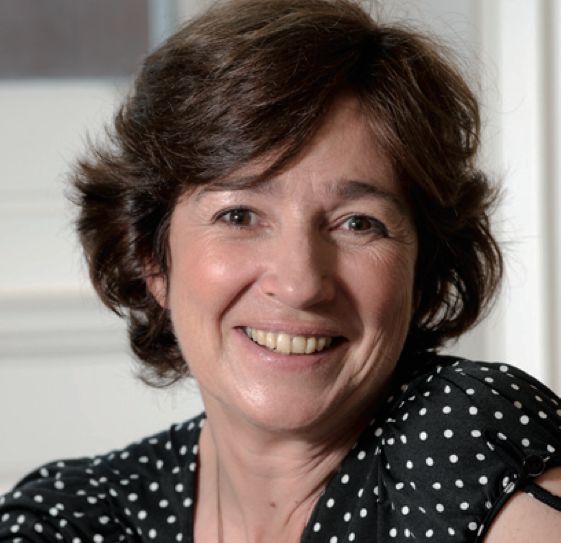 |
Catherine Simon President and Founder of Innorobo / InnoEchoCatherine Simon is the President and Founder of Innorobo, one of Europe’s key events dedicated to the service robotics sector, which brings together robotics companies, laboratories, start-ups, inventors, SMEs and funding providers in order to drive innovation. She also founded InnoEcho, a business strategy consultancy for the new technologies sector. Innorobo began as a regional show in Lyon, France, and recently moved to Paris to reflect its recent growth; the 2017 Innorobo event ran over three days and attracted 170 exhibitors and over 7K visitors. |
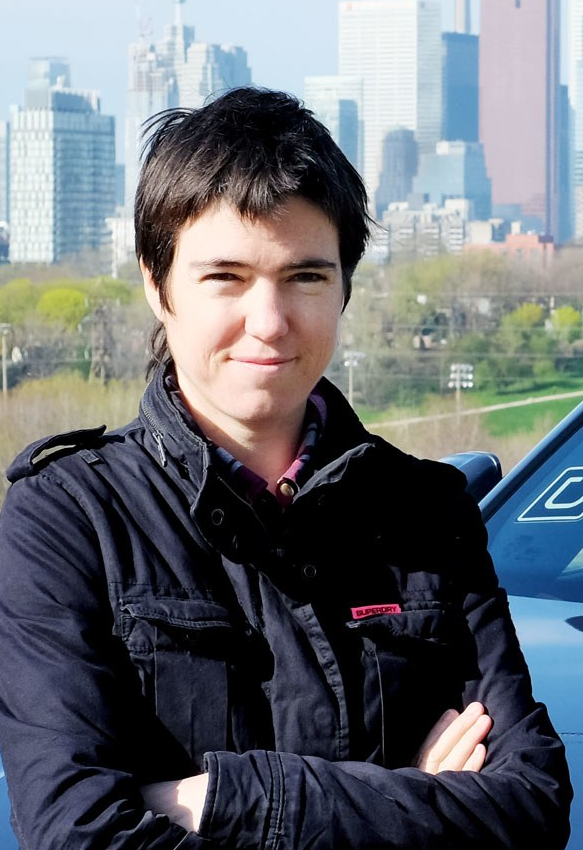 |
Raquel Urtasun Assistant Professor at University of Toronto, Head of Uber ATG, Co-Founder of Vector Institute for AIRaquel Urtasun is the Head of Uber ATG Toronto. She is also an Associate Professor in the Department of Computer Science at the University of Toronto, a Canada Research Chair in Machine Learning and Computer Vision and a co-founder of the Vector Institute for AI. She is a world leading expert in machine perception for self-driving cars, and her research interests include machine learning, computer vision, robotics and remote sensing. |
 |
Stella Uzochukwu-Denis Program Coordinator at Odyssey Educational FoundationStella Uzochukwu-Denis is an electrical engineer and the founder of The Odyssey Educational Foundation, a Nigerian NGO that provides STEM education and robotics experiences to school children in Abuja – a region of Nigeria where militant attacks have kept hundreds of thousands of children out of school in recent years. The foundation’s main goal is to encourage children, and girls in particular, to pursue careers in science and technology. The foundation has trained well over 450 school age girls since its launch in 2013. “My utlimate goal is to ensure that kids become college-ready, career-ready and world-ready.” |
 |
Aimee van Wynsberghe Co-Founder of Foundation for Responsible Robotics, Assistant Professor at Delft University of TechnologyAimee van Wynsberghe is assistant professor of ethics and technology at Delft University of Technology in the Netherlands. She is co-founder and president of the Foundation for Responsible Robotics. She is also a member of the 4TU center for ethics and technology where she heads the robotics task force. With the help of an NWO personal research grant she is researching how we can responsibly design service robots. Her past research looked at evaluating and designing care robots. |
Do you have a story to tell about how visibility helped your robotics career? Would you like to nominate someone for next year’s list? Do you want to help organize Women in Robotics events or join the Women in Robotics network? We’d love to hear from you. Know of any great women in robotics who should be on this list next year? Check the lists from our previous years (2013, 2014, 2015 and 2016), and feel free to leave your nominations in the comments section below, or email us at nominations [at] womeninrobotics.org.
If you liked this article, you may also be interested in:
- 25 women in robotics you need to know about (2013)
- 25 women in robotics you need to know about (2014)
- 25 women in robotics you need to know about (2015)
- 25 women in robotics you need to know about (2016)
- How to hire women from Silicon Valley Robotics
- Five women robotics experts from Silicon Valley share their stories
- Steffi Paepcke on Robots, women and design: Opportunities abound
See all the latest robotics news on Robohub, or sign up for our weekly newsletter.
tags: herotagrc, women in robotics list
